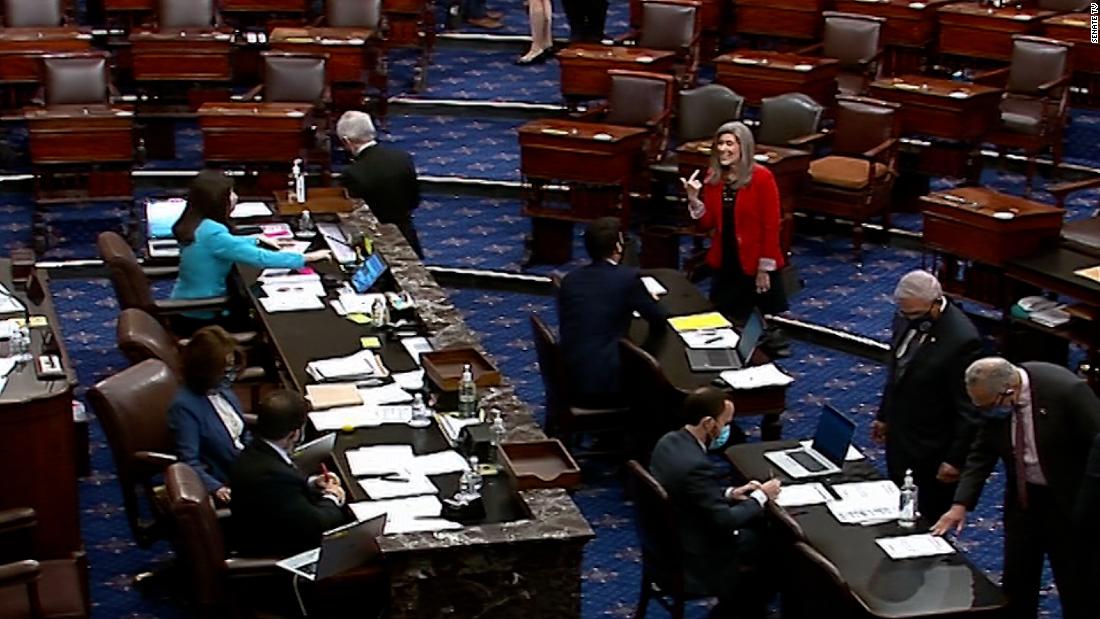THE BIG FIVE

 Innovation in the healthcare industry is a priority thanks to Covid-19. With the success of vaccinations, the country is back on a more regular track after a year of lockdowns and restrictions, which begs the question: how did the pandemic impact the healthcare industry? Health policy experts are weighing in on what the healthcare industry has done to adapt and how Americans should receive healthcare coverage. Even after one of the most challenging years in our nation’s history, there is a renewed sense of optimism. The drastic changes last year have led to a spur in innovation, and leading insurers are finding new ways for patients to receive coverage. Enhancing access to telehealth has become a priority as well as new investments in other types of care. Data points on coverage are utilized to identify areas with lower vaccination rates, providing insight for targeted outreach campaigns. Many believe this trend will continue beyond the pandemic, increasing the flexibility and options for receiving care. Read more in NPR.
Innovation in the healthcare industry is a priority thanks to Covid-19. With the success of vaccinations, the country is back on a more regular track after a year of lockdowns and restrictions, which begs the question: how did the pandemic impact the healthcare industry? Health policy experts are weighing in on what the healthcare industry has done to adapt and how Americans should receive healthcare coverage. Even after one of the most challenging years in our nation’s history, there is a renewed sense of optimism. The drastic changes last year have led to a spur in innovation, and leading insurers are finding new ways for patients to receive coverage. Enhancing access to telehealth has become a priority as well as new investments in other types of care. Data points on coverage are utilized to identify areas with lower vaccination rates, providing insight for targeted outreach campaigns. Many believe this trend will continue beyond the pandemic, increasing the flexibility and options for receiving care. Read more in NPR. Biden administration approves the nation’s first major offshore wind farm. The reemergence of the immigration debate and the citizenship question. The U.S. will soon see its first-ever major offshore wind farm, thanks to the Biden administration’s approval of the Vineyard Wind project, which is set to be located off the coast of Massachusetts. The announcement comes as Biden continues to push the administration’s broader agenda for clean energy development in the U.S. While the nation has seen an acceleration in onshore growth, America continues to lag behind European countries on the offshore side. Europe has 25 gigawatts (GW) while the U.S. has only 42 megawatts (MW) in its current offshore capacity, totaling just 4.2 percent of Europe’s offshore generating capacity. A successful boom in offshore wind development would be a significant milestone for the U.S. and generate more clean energy for generations to come. Read more in New York Times.
Biden administration approves the nation’s first major offshore wind farm. The reemergence of the immigration debate and the citizenship question. The U.S. will soon see its first-ever major offshore wind farm, thanks to the Biden administration’s approval of the Vineyard Wind project, which is set to be located off the coast of Massachusetts. The announcement comes as Biden continues to push the administration’s broader agenda for clean energy development in the U.S. While the nation has seen an acceleration in onshore growth, America continues to lag behind European countries on the offshore side. Europe has 25 gigawatts (GW) while the U.S. has only 42 megawatts (MW) in its current offshore capacity, totaling just 4.2 percent of Europe’s offshore generating capacity. A successful boom in offshore wind development would be a significant milestone for the U.S. and generate more clean energy for generations to come. Read more in New York Times. The GOP leadership war and the war over cancel culture.
The GOP leadership war and the war over cancel culture. Grocery store sticker shock: inflation grows as the U.S. economy bounces back. Aided by trillions of dollars in fiscal stimulus funds and a growing vaccinated population, the economy is finding itself on the mend following the pandemic. However, the quick economic turnaround has also affected the expected inflation and is causing the economy to “overheat.” The Labor Department reported its Consumer Price Index jumped 4.2 percent in April from the year before, accelerating at its fastest pace in more than 12 years. Americans are paying more now for gas, groceries, cars, clothing, and everyday expenses. The reason? Rapid consumer spending combined with supply chain setbacks is driving prices higher and decreasing purchasing power over time. Experts now anticipate the inflation rate to increase to more than 3.4 percent over the next year. With job openings reaching a high without the workers needed to fill the positions, it may prompt a move on interest rates sooner than expected. Price rebounds from a recession are common, but experts say Americans may need to ride out this inflated period until temperatures cool down. Read more in CNBC.
Grocery store sticker shock: inflation grows as the U.S. economy bounces back. Aided by trillions of dollars in fiscal stimulus funds and a growing vaccinated population, the economy is finding itself on the mend following the pandemic. However, the quick economic turnaround has also affected the expected inflation and is causing the economy to “overheat.” The Labor Department reported its Consumer Price Index jumped 4.2 percent in April from the year before, accelerating at its fastest pace in more than 12 years. Americans are paying more now for gas, groceries, cars, clothing, and everyday expenses. The reason? Rapid consumer spending combined with supply chain setbacks is driving prices higher and decreasing purchasing power over time. Experts now anticipate the inflation rate to increase to more than 3.4 percent over the next year. With job openings reaching a high without the workers needed to fill the positions, it may prompt a move on interest rates sooner than expected. Price rebounds from a recession are common, but experts say Americans may need to ride out this inflated period until temperatures cool down. Read more in CNBC.
DATA POINTS
- 45%: The percentage of the East Coast’s fuel supplied by the Colonial Pipeline, which had to pause operations this week after hackers broke into its servers.
- 119 million: The number of Americans now fully vaccinated, and who the CDC says can now go most places without a mask, according to new guidelines.
- 8.1 million: The number of job openings in March posted in the U.S. – that’s the highest number on record since the government starting tracking job numbers back in 2000.
- 11: The number of states to date that have announced it will be ending the federal unemployment benefits that have been in place since the pandemic began. The American Rescue Plan initially expected to offer these funds through Sept. 6th.
- $1 million: The amount that five randomly chosen, fully vaccinated Ohioans will receive in a state lottery. The announcement is making national headlines as a controversial move to incentivize getting vaccinated.
- 4.2%: The percentage increase in U.S. inflation year over year, raising concerns that the U.S. economy is overheating.
- $365 billion: The amount of cryptocurrency estimated to be wiped off the market after Tesla announced it would stop purchasing cars with bitcoin.
- 10 months ago: The last time COVID-19 deaths in the U.S. were this low, as the country continues to see a decline with more Americans vaccinated.
- 17: The number of games that will be played in the NFL regular season. Previously, seasons consisted of 16 games.
TWEET
Republican senators say Biden has asked them to rework their infrastructure offer and then come back. They also said, after the CDC news, they all took off their masks in the Oval Office. And President Biden did too.”
— Jonathan Lemire, White House reporter for the Associated Press (@JonLemire)
Image credit: CNN



